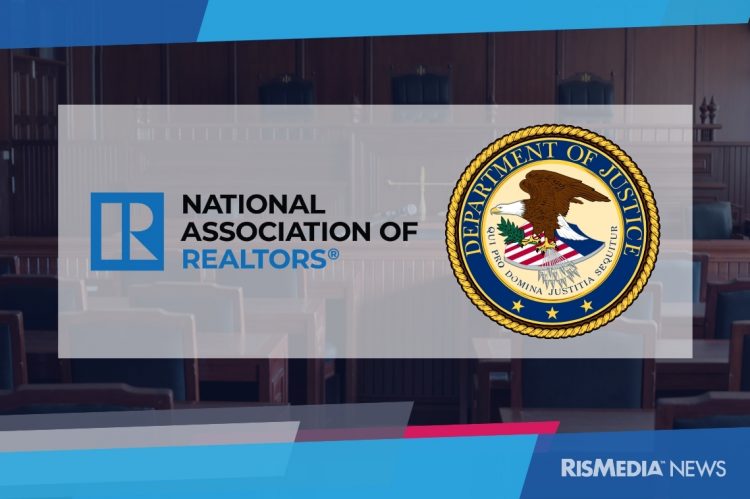The U.S. Department of Justice (DOJ) argued to an appeals court yesterday that last month’s petition by the National Association of REALTORS® (NAR) for a rehearing of the agency’s bid to reopen its investigation into the association is “not warranted.”
Filed on May 20 in the D.C. Circuit Court of Appeals, NAR asked both for a rehearing in front of the original three-judge panel that, in April, allowed the Department of Justice (DOJ) to reboot its investigation of several NAR rules, as well as a chance to argue their case in front of the full cadre judges on the circuit court, known as an “en banc” review. The appeal represented another push by the association to stymie further efforts by regulators to alter policies foundational to the industry.
“The panel’s errors are far-reaching and exceptionally important. Every day, federal agencies resolve civil and criminal enforcement actions through agreements with private parties,” NAR lawyers wrote in the May filing. “It is a bedrock principle that the government must honor its word in those contracts, no matter who occupies the White House or leads the Antitrust Division.”
At the heart of the legal battle is a document sent from the DOJ to NAR in November 2020—”the three-sentence letter”—confirming that the DOJ “has closed” its investigation into the association’s rules. The letter read:
“This letter is to inform you that the Antitrust Division has closed its investigation into Clear Cooperation Policy and Participation Rule. Accordingly, NAR will have no obligation to respond to (previously issued civil subpoenas). No inference should be drawn, however, from the Division’s decision to close its investigation into these rules, policies or practices not addressed by the consent decree.”
The use of the term “has closed,” however, implies a backward-looking statement and, therefore, does not preclude the DOJ from future action, the agency’s filing argues. The DOJ further argued that the backward-looking language was suggested by NAR.
“Although NAR complains that the panel’s interpretation of the letter ‘imposed no constraint on DOJ’s investigatory authority’, the Division never agreed to that constraint—something it told NAR multiple times,” read the filing. “In response to the Division’s repeated rejection of such a constraint, NAR itself proposed the narrow, backward-looking ‘has closed’ language.”
According to yesterday’s response filed by the DOJ, “based on the closing letter’s ‘plain language,’ the panel held that the letter conveyed no such commitment. And it found that ‘during the parties’ negotiations, (the DOJ Antitrust Division) explicitly declined to accept any agreement that constrained future investigations’—specifically, the parties’ prior correspondence supported its interpretation, as the Division had repeatedly told NAR that it would not and could not ‘commit to never investigating or challenging NAR’s rules and policies in the future.'”
“The Petition does not identify any errors of law or fact meriting panel rehearing and falls far short of meeting the ‘demandingly high’ standards warranting rehearing en banc,” the filing further read.
Notably, though, one of the judges on the circuit court panel dissented from his two colleagues, agreeing with NAR that allowing the DOJ to reopen its investigation with no restrictions or stipulations could set a bad precedent, and violated the spirit of the agreement.
The legal battle between NAR and the DOJ is now stretching into its fifth year, with the current dispute centered on the 2020 letter and agreement. After the DOJ launched a probe into several NAR policies in 2019, including the “participation rule,” which has been central to commission-focused class-action lawsuits, both parties seemed to find a resolution as the DOJ agreed to close the inquiry in exchange for changes to some—but not all—the challenged rules.
A district judge subsequently handed NAR a big win in 2023, ruling that the DOJ was bound by the letter that characterized the inquiry as “closed.” But the DOJ appealed, and this April, the D.C. Circuit reversed the district judge’s ruling, saying that the letter written by the DOJ made no assurances about how long the investigation would stay closed.
While the current status of the DOJ’s investigation is unclear, Jessica Leal, a lawyer in the Antitrust Division, declined to take a position on the NAR commission case settlement, but called the removal of compensation from the MLS “an improvement.”
This is a developing story. Stay tuned to RISMedia for updates.











